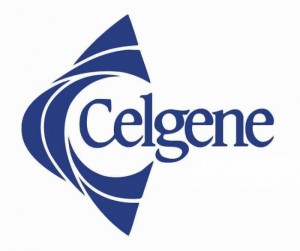 Bristol-Myers Squibb Company and Celgene Corporation are collaborating on a clinical trial that will evaluate the safety and efficacy of a combined therapy of Bristol-Myers Squibb’s OPDIVO, an investigational PD-1 immune checkpoint inhibitor, and Celgene’s ABRAXANE, a nab® technology-based chemotherapy.
Bristol-Myers Squibb Company and Celgene Corporation are collaborating on a clinical trial that will evaluate the safety and efficacy of a combined therapy of Bristol-Myers Squibb’s OPDIVO, an investigational PD-1 immune checkpoint inhibitor, and Celgene’s ABRAXANE, a nab® technology-based chemotherapy.
Researchers will analyze various tumor types, including HER-2 negative metastatic breast cancer, pancreatic cancer and non-small cell lung cancer.
Already approved in Japan last month for the treatment of patients with unresectable melanoma, OPDIVO could enable the immune system to renew its ability to recognize, attack, and destroy cancer cells. Bristol-Myers Squibb’s researchers are testing whether that is possible by using OPDIVO to block the checkpoint receptor PD-1 expressed on activated T-cells.
 As for ABRAXANE, formulated with human protein albumin and free of solvents, it is an albumin-bound form of paclitaxel that is manufactured using patented nab technology.
As for ABRAXANE, formulated with human protein albumin and free of solvents, it is an albumin-bound form of paclitaxel that is manufactured using patented nab technology.
Combining these two drugs, the companies will explore whether these two agents may lead to an enhanced anti-tumor response compared to either agent alone.
Ultimately, Michael Giordano, senior vice president of Oncology Development at Bristol-Myers Squibb, hopes that this collaboration will lead to a better understanding of how combining the body’s own immune system and chemotherapy might result in more effective treatments for cancer.
The study should begin in the fourth quarter of 2014 and will be conducted by Celgene. Patients with HER-2 negative breast cancer will be treated with ABRAXANE and OPDIVO, patients with NSCLC will be treated with the combination of ABRAXANE, carboplatin and OPDIVO,and patients with pancreatic adenocarcinoma will be treated with ABRAXANE, gemcitabine and OPDIVO.

